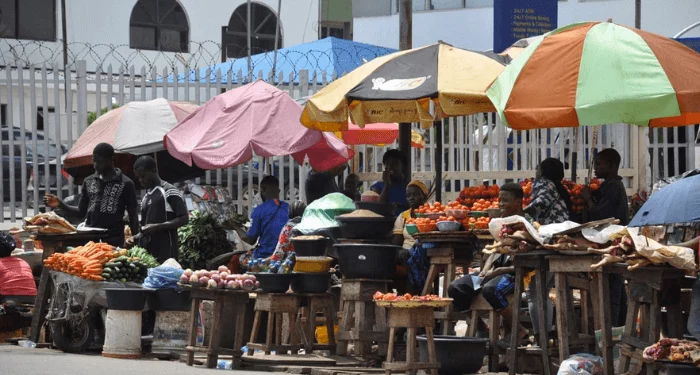Why is Nigeria’s inflation so high?
For the 12 months ending in June, Nigeria’s inflation rate skyrocketed to 18.6 percent, the highest in the past five years, since January 2017 when it was 18.72 percent.
That was nothing compared to what energy prices did. Fueled by heavy demand and by Russia’s invasion of Ukraine, crude oil prices have shot up above $100 in the past six months.
This has led to an increase in diesel prices which has almost tripled from an average price of N239 in May last year to N671 in the same month this year, while Nigeria’s petrol subsidy payments have totalled N947.53 billion, more than half of 2021 subsidy spending, which was N1.573 trillion.
Even if you toss out food and energy prices—which are notoriously volatile and have driven much of the price spike, core inflation soared 15.75 percent over the past year, the highest since February 2017.
Consumers have endured the pain of everyday routines. In a report released recently by Bloomberg, “The average cost of an intra-city bus journey in Nigeria increased 46 percent to N582 ($1.39) a trip in May 2022 compared with a year earlier, and flight tickets soared 53 percent over the same period to N55,907”, according to data released by the National Bureau of Statistics.
An average price of 1 kg of beans (white, black eye, sold loose) rose on a year-on-year basis by 44.3 percent to N519 in April, same as 500g of bread which increased by 35.31 percent to N451, 1 kg of yam tuber by 42.9 percent within the same comparable periods to N361.2 in April 2022, amongst others.
Last year, the World Bank said that the country’s high inflation rate has pushed more people into poverty. In 2020, the number of poor people increased to 90.1 million in 2021 from 82.9 million, and it is projected to hit 95.1 million in 2022.
Inflation has consistently risen since the beginning of the year, from 15.6 percent to 18.6 percent in June, when 18.6 percent was recorded.
The food inflation rate, which is the major driver of this accelerating inflation rate, increased to 20.6 percent in June from January, when it was 17.13 percent.
What caused the spike in inflation?
In July 2019, just before the borders were shut, the inflation rate stood at 11.08 percent, then it declined to 11.02 percent in August, the month when the border was closed, the lowest in 39 months, but the rate started to spike afterwards.
Then the pandemic paralyzed the economy in 2020, and lockdowns kicked in, businesses closed or cut hours, and consumers stayed home as a health precaution.
Russia’s war with Ukraine, which started in February this year, led to supply shocks in energy and food, which accelerated the inflation rate. The war between the major commodity exporters led to higher prices of commodities such as crude, natural gas, aluminium, nickel, wheat, and other commodities which are soaring to record levels, leaving markets in disarray.
The price of a litre of diesel skyrocketed to a record high of N600, two weeks into Russia’s invasion of Ukraine, from around N420-N450, as oil prices climbed above $120 a barrel.
In addition, the average exchange rate in the parallel market is now as high as N610 per dollar against the official exchange rate of N416.08 per dollar. Most importers of food, raw materials, and machinery do not have adequate foreign currency from the official channels; as a result, they access the parallel market at a higher rate, thereby transferring the cost to consumers by increasing the price of their products.
Lastly, according to the daily ‘Good Morning Nigeria’ report by FBN Quest, soaring food inflation is a result of Nigeria’s agricultural industry’s insecurity, post-harvest losses, lack of mechanisation, and inadequate infrastructure.
What can be done about it?
The World Bank has advised the Central Bank of Nigeria (CBN) to allow further adjustment of the naira at the official window, to reduce the persistent foreign exchange pressure in the country.
According to the World Bank, the CBN maintains a complete restriction of FX supply to import about 45 products and firms report limited FX supply availability for other imports.
The World Bank said that “clarity on exchange rate policy, and transparency in its management, are necessary to attract more significant capital inflows, including foreign direct investments.”
“The benefits of a more effective exchange rate management, with a view towards a unified and market-reflective exchange rate, are more significant than in previous years. Favourable external conditions (oil prices being the highest in nine years) provide an opportunity to adjust the exchange rate reflective of market dynamics,“ the World Bank added.
On the other hand, the CBN has tried to improve productivity in the agriculture sector by improving credit access through its various intervention schemes, the results have been blunted by rising insecurity, which is the sector’s biggest challenge, the report said.
“There is a limit to CBN’s intervention to curb inflation as the government is armed with the responsibility of solving insecurity and implementing measures to reduce the cost of production,” said Sesan Adeyeye, equity research analyst, CSL Stockbrokers Limited.







